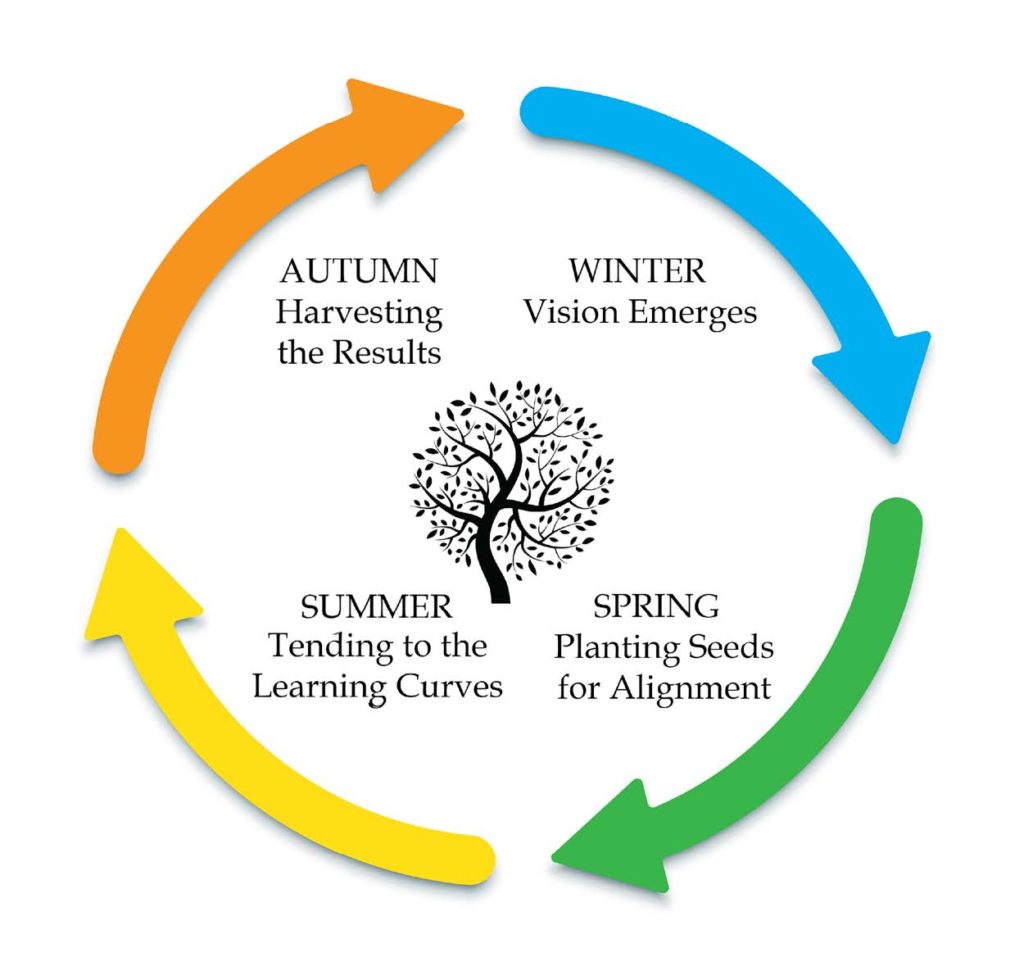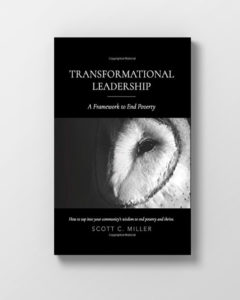Without vision, the matrix tells us that people feel confusion and a lack of motivation to change. Pain will push people so far, but then vision must pull them toward something attractive. Without vision, old habits persist, and situations will continue to deteriorate. Vision must provide a compelling case for change, a strong description of what could happen if, for example, we ended poverty. And it must provide two or three high-impact strategies that let people know that the vision can be achieved.
The future enters into us, in order to transform itself in us, long before it happens.
— Rainer Maria Rilke
Individual Change Precedes Social Change
Just as in the cycles of nature, you will move through each of the four seasons of the change process. The first task is to develop a clear understanding of your own vision and purpose.
 When we wish to change something in the world, there is often something in our own lives that we want to explore, assess, and change as well.
When we wish to change something in the world, there is often something in our own lives that we want to explore, assess, and change as well.
For example, in my early job experience serving people struggling in poverty, I realized how often people seemed alone with their problems. So, I created support groups as a response to such isolation. Then I looked at my own life and asked, “Where do I feel too alone in my own problems? How can I give myself more support?”
It became apparent that before I could make any lasting social change, I had to commit to changing my own life. Circles USA was the result of an intense soul-searching process that I began in the mid-1990s. Circles is a process of surrounding yourself with people who will be Allies as you make an important change, such as moving out of poverty.
A fundamental assumption underlying our approach is that each of us is more powerful than we give ourselves credit for. One might think global questions are only for world leaders to answer, but it takes only one person to send a breakthrough idea around the world at lightning speed. When we listen to our hearts, make a commitment to action, form a circle of supportive Allies, learn whatever is necessary, and embed change into the culture, the world can be positively impacted.
From the book: Transformational Leadership: A Framework to End Poverty ~ By Scott C. Miller
To learn more about Scott Miller, please see his website here.

